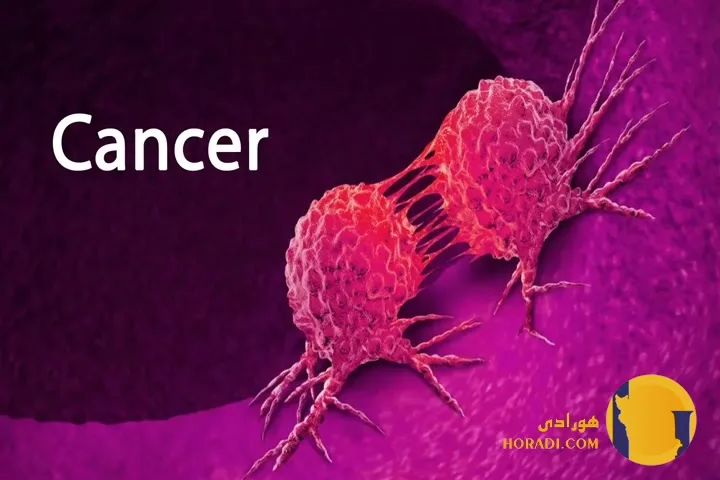
Top 5 Breakthroughs in Cancer Research
Cancer research continues to reshape medicine, unlocking innovative treatments, life-saving technologies, and profound hope for patients worldwide.Top 5 Breakthroughs in Cancer Research
Immunotherapy and the Rise of Immune System-Based Treatments
Immunotherapy has revolutionized cancer research by empowering the body’s natural defenses to fight tumors. Unlike chemotherapy or radiation, which directly target cancer cells but also harm healthy ones, immunotherapy works by enhancing or reprogramming the immune system to recognize malignant cells as threats. This breakthrough has changed the landscape of treatment options, particularly for cancers once considered nearly untreatable.
One of the most significant achievements in this area is the development of immune checkpoint inhibitors. Normally, cancer cells exploit natural “checkpoints” in the immune system to avoid detection. By blocking these checkpoints, drugs allow T-cells to launch a full attack against tumors. This innovation has shown remarkable results in conditions such as melanoma, lung cancer, and kidney cancer, where survival rates have drastically improved compared to traditional therapies.
Another exciting development involves CAR-T cell therapy. In this approach, scientists extract a patient’s T-cells, genetically engineer them to better recognize cancer antigens, and then reintroduce them into the body. The modified T-cells act like precision weapons, targeting and destroying cancer cells with stunning efficiency. Although initially approved for blood cancers like leukemia and lymphoma, ongoing research is expanding its use to solid tumors. The personalization of treatment through immunotherapy represents one of the most hopeful frontiers in oncology.
Immunotherapy also offers long-term benefits in some cases. Unlike conventional therapies, which may only suppress cancer temporarily, immune-based strategies can create “memory” responses, training the body to prevent relapse. While not without challenges — such as side effects and high costs — the progress made in the last decade positions immunotherapy as a transformative force in cancer research.
Precision Medicine and Genetic Profiling of Tumors
Another groundbreaking development is the rise of precision medicine, which tailors treatments to the genetic makeup of individual patients and their tumors. Instead of prescribing a one-size-fits-all approach, doctors can now analyze the specific mutations driving a person’s cancer and design therapies that directly target those abnormalities.
Genomic sequencing technology has made this possible. With advanced sequencing, tumors can be profiled in detail, uncovering mutations in genes such as EGFR, BRCA, and HER2. Once identified, targeted drugs can disrupt the specific pathways fueling cancer growth. For example, patients with HER2-positive breast cancer benefit from therapies that inhibit HER2 proteins, leading to improved survival and quality of life.
Liquid biopsies have also emerged as an important tool in precision medicine. By analyzing fragments of tumor DNA circulating in the bloodstream, doctors can monitor cancer progression, detect mutations, and adjust treatment plans in real time without invasive procedures. This not only makes cancer monitoring more comfortable for patients but also allows earlier interventions if resistance to therapy develops.
Another area of growth is combination therapies, where genetic data guides the use of multiple drugs to prevent cancer from adapting. By anticipating how tumors evolve, precision medicine can stay one step ahead, reducing relapse rates. The ultimate goal is to provide every cancer patient with a treatment uniquely designed for their biology, increasing effectiveness while minimizing unnecessary side effects.
Advances in Early Detection and Diagnostic Technologies
Early detection has always been critical in the fight against cancer, as survival rates are significantly higher when cancers are diagnosed at an early stage. Recent breakthroughs in diagnostic technology are making it possible to identify cancer earlier, faster, and with greater accuracy than ever before.
Liquid biopsies, in addition to monitoring treatment response, are now being developed to detect cancers before symptoms appear. By analyzing genetic markers and protein signatures in the blood, scientists can potentially identify cancers at their earliest stages, sometimes years before they would have been discovered through imaging or physical exams. This is especially important for cancers like pancreatic or ovarian cancer, which are often diagnosed too late for effective intervention.
Artificial intelligence (AI) is also transforming cancer diagnostics. AI algorithms can analyze medical images, such as mammograms or CT scans, with remarkable precision, sometimes surpassing human radiologists in accuracy. These systems can detect subtle patterns that might otherwise be missed, reducing false positives and negatives. AI is also being integrated into pathology, where digital tools examine tissue samples for molecular changes invisible to the human eye.
Moreover, wearable technology is beginning to play a role in detection. Devices capable of continuously monitoring biomarkers in sweat, saliva, or breath may one day alert patients to early signs of cancer or recurrence. These innovations make detection less invasive and more accessible, bringing us closer to a future where cancer can be caught and treated before it becomes life-threatening.
Breakthroughs in Personalized Cancer Vaccines
Cancer vaccines are not a new concept, but recent breakthroughs have brought them closer to reality than ever before. Unlike traditional vaccines that prevent diseases caused by viruses or bacteria, cancer vaccines are therapeutic. They are designed to treat existing cancers by stimulating the immune system to recognize and attack tumor-specific antigens.
Personalized cancer vaccines are particularly promising. They are custom-made for each patient by analyzing the unique mutations within their tumors. Once identified, these mutations are used to create a vaccine that “teaches” the immune system to target cancer cells bearing those exact markers. This personalized approach ensures that the treatment is highly specific, reducing collateral damage to healthy tissues.
Clinical trials have shown that these vaccines can generate strong immune responses, shrinking tumors and prolonging survival in certain cancers. The progress accelerated during the global development of mRNA vaccine technology, which was pioneered for infectious diseases but is now being adapted for oncology. mRNA vaccines are particularly attractive because they can be designed and manufactured quickly, enabling rapid personalization for each patient’s cancer profile.
The potential of cancer vaccines extends beyond treatment. Researchers envision vaccines that could one day prevent high-risk individuals from developing cancer altogether. While these goals remain on the horizon, the rapid advancements of the last few years have transformed cancer vaccines from a theoretical idea into a tangible breakthrough.
New Frontiers in Minimally Invasive and Targeted Therapies
Traditional cancer treatments like chemotherapy and radiation, while effective, often come with harsh side effects because they damage healthy cells alongside cancerous ones. Recent research has focused on developing therapies that are both more effective and less harmful, paving the way for minimally invasive and highly targeted treatment methods.
One major breakthrough is in the use of nanoparticle technology. Nanoparticles can be engineered to deliver drugs directly to tumor cells, bypassing healthy tissues. This targeted approach not only improves the effectiveness of treatment but also reduces toxicity. Some nanoparticles are even designed to release drugs only in the acidic environment of tumors, maximizing precision.
Proton beam therapy is another advance in radiation treatment. Unlike conventional radiation, which can scatter and damage nearby healthy tissues, proton beams deliver radiation with pinpoint accuracy. This makes it particularly valuable for treating cancers near sensitive organs, such as in the brain or spinal cord, and for pediatric patients where minimizing long-term side effects is critical.
Gene-editing tools like CRISPR are also opening new possibilities in cancer therapy. By directly altering genes within cancer cells, researchers can disable the mechanisms that drive growth or make tumors resistant to treatment. Although still in early stages, these therapies hold enormous promise for creating curative options tailored to specific genetic profiles.
Together, these innovations mark a shift toward treatments that are smarter, safer, and more effective, ensuring patients not only survive but also enjoy a better quality of life after therapy.
The Global Impact of Cancer Research Breakthroughs
The top five breakthroughs in cancer research — immunotherapy, precision medicine, early detection, cancer vaccines, and minimally invasive therapies — are not just scientific milestones. They are transforming patient outcomes, providing hope where little existed before, and setting new standards in how cancer is diagnosed, treated, and managed.
These advancements also highlight the importance of collaboration between researchers, clinicians, and technology developers across the world. Cancer is a global disease, and progress in one region often benefits patients everywhere. By continuing to invest in research and fostering innovation, the future of cancer care is steadily moving from reactive treatment to proactive prevention and personalized solutions.
Looking Toward the Future of Cancer Treatment
While remarkable progress has been made, the fight against cancer is far from over. Researchers continue to face challenges such as treatment resistance, affordability, and access to care. Yet, the breakthroughs of recent years prove that the pace of discovery is accelerating. Emerging fields like artificial intelligence, nanotechnology, and genetic engineering will likely merge with oncology in ways that produce even more groundbreaking solutions.
The ultimate vision is a future where cancer is no longer a feared diagnosis but a manageable condition or even a preventable one. Each breakthrough brings humanity closer to that reality. The persistence of scientists, combined with evolving technology, ensures that the story of cancer research is not just one of struggle but also of relentless hope and progress.









































